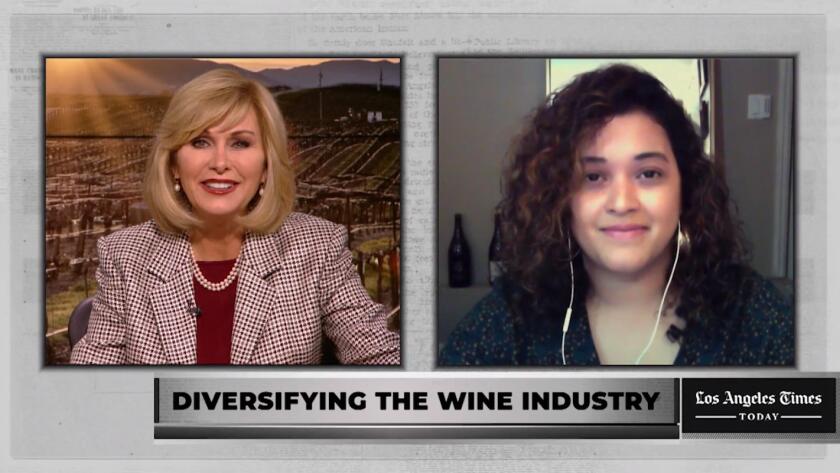How one woman is diversifying the wine industry, one Zoom at a time
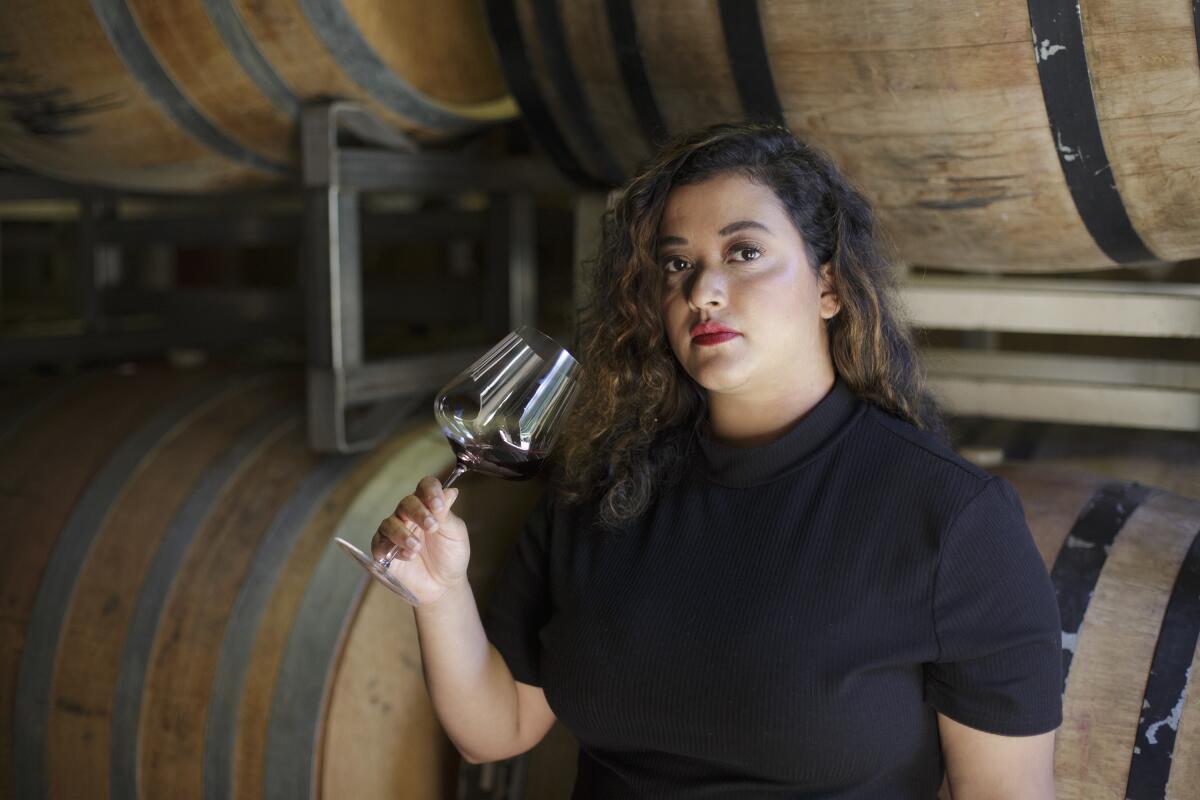
- Share via
Jirka Jireh is a caviste at Ordinaire wine shop and bar in Oakland, where she has worked for the last two years. She started her career in wine about eight years ago during a stint as a part-time food runner at Tom Colicchio’s now-shuttered Riverpark in New York, where she says she “caught the bug.”
“There is some sort of magic that happens when you handle the bottles in the restaurant cellars and read the labels, and I just thought, ‘How do I understand this?’” Jireh said.
At Riverpark, Jarred Roth, one particularly generous wine director, took the time to show her the ropes. By the time she left the restaurant, she was the lead bartender. She went on to become a wine professional and worked as a sommelier at the lauded Olmsted restaurant in Brooklyn.
But when Jireh went to wine tastings, she would look around to find maybe one other person of color in the room. In a sea of older white men, nobody looked remotely like she did. And she started to wonder if her industry would ever change.
“Throughout my career, I’m constantly working and finding and figuring out how I can get more wine knowledge,” the 34-year-old said. “I want to go to the wine fairs in France and see an ocean of people that look like me, as opposed to when I went in years past and only saw one or two other friends across the room.”
The path to becoming a wine industry professional is notoriously restrictive and mostly dependent on money and connections. While a shrinking number of high-end restaurants still insist on a form of sommelier certification, some budding wine professionals, like Jireh, apprentice somewhere with an impressive wine cellar and climb the ladder. But with the financial fate of many restaurants growing ever more precarious during the pandemic, employing a full-time wine staff is an expense many simply can’t sustain. To buy and taste a variety of wines on your own is expensive.
If you can afford it, there are wine courses and certifications available from various organizations. To become a master sommelier, a prestigious title that can lead to higher pay and speaking engagements, the Court of Master Sommeliers’ introductory course and examination is $699 (several members of the organization were suspended recently following reports of a pattern of sexual harassment). The same group also offers a one-day Deductive Tasting Method workshop for $499. If you want to sit in a classroom and earn your intermediate wine certificate from the International Sommelier Guild, it will cost you $850.
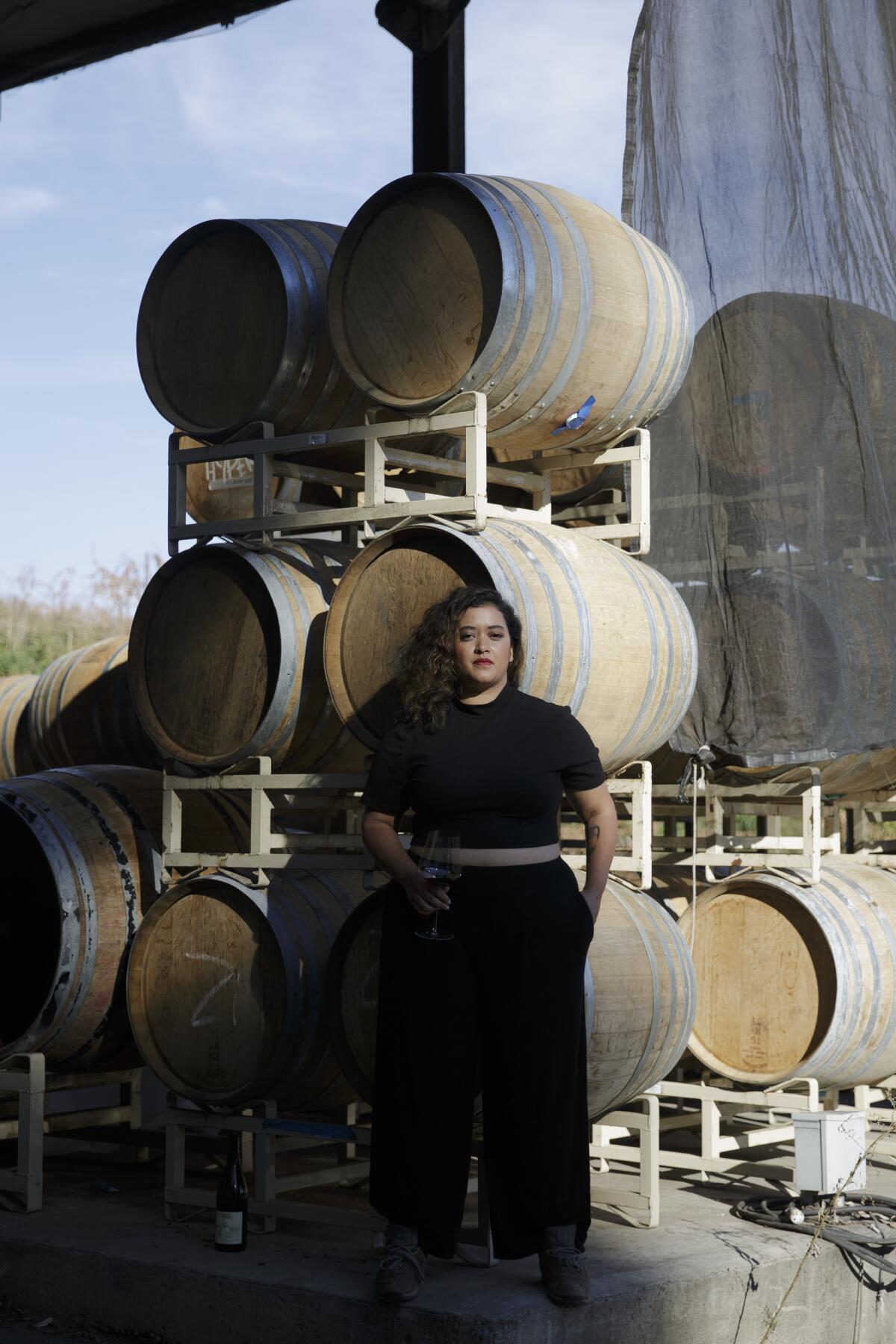
According to a 2020 study by the Grape Collective, just 14% of California wineries are owned by women; only a fraction of that number are BIPOC (Black, Indigenous, people of color). And fewer than 1% of wineries in the U.S. are Black-owned or employ a Black winemaker.
In March, Jireh hosted a workshop in the Bay Area called the Price of Admission, with the purpose of creating a culture of consent by dismantling discrimination and sexual violence within the wine industry. About 60 natural winemakers, distributors, importers, winegrowers and front-of-house staff from around the country attended.
This summer, compelled by the international reckoning following the killings of George Floyd, Breonna Taylor and many other people of color, industries around the world took a hard look at how they either contributed to or were complacent in systemic racism. Jireh again decided to take on the task of diversifying the wine industry through education.
“There was an uprising of consciousness because everyone is at home during COVID and they have time to process what’s happening in the country,” she said. It’s “the clamoring that everyone has had within their own industries of how do we do better and how do we stand up for BIPOC and even the playing field.”
Jireh reached out to James Sligh, who had recently left his job as a sommelier at Compagnie des Vins Surnaturels wine bar in New York, for help. Sligh was also teaching remote wine education classes and making hand-drawn maps of wine regions for the Children’s Atlas of Wine. They put together Industry Sessions, a class for BIPOC that included free tastes of wine they shipped to participants, and a Zoom link.
“That first class, James and I were buying the wine,” Jireh said.
“My unemployment went into it and it went on a credit card,” Sligh added.
The two put together a curriculum that built on some of the pre-COVID-19 industry seminars Sligh was teaching, focused on the Roussillon region in France, and hosted the first Industry Session on June 21 in front of about 60 participants.
“It became a very grass-roots effort throughout the natural wine community,” Jireh said. “I used to joke that there were like five of us across the country, but there are hundreds of BIPOC wine professionals, and now we all know who the other is within these sessions.”
The second session delved into the world of Burgenland, Austria. For the third class, Jireh and Sligh persuaded Wines of Georgia, an organization devoted to promoting wines produced in the country of Georgia, to pay for the bottles of Georgian wine and food pairings that were sent to participants.
She and Sligh rely on donations or sponsors to supply the wines. And when one doesn’t come through, they foot the bill.
By that third class, Jireh and Sligh had created a model that included multiple speakers and breakout rooms where participants tasted wines and compared notes in a small group setting. Following the sessions, the pair asked for feedback, which prompted the start of a study guide that included a glossary of terms that came up during the various classes. They implemented the practice of “tagging” people during introductions to avoid dead air time and started including pronouns in Zoom names.
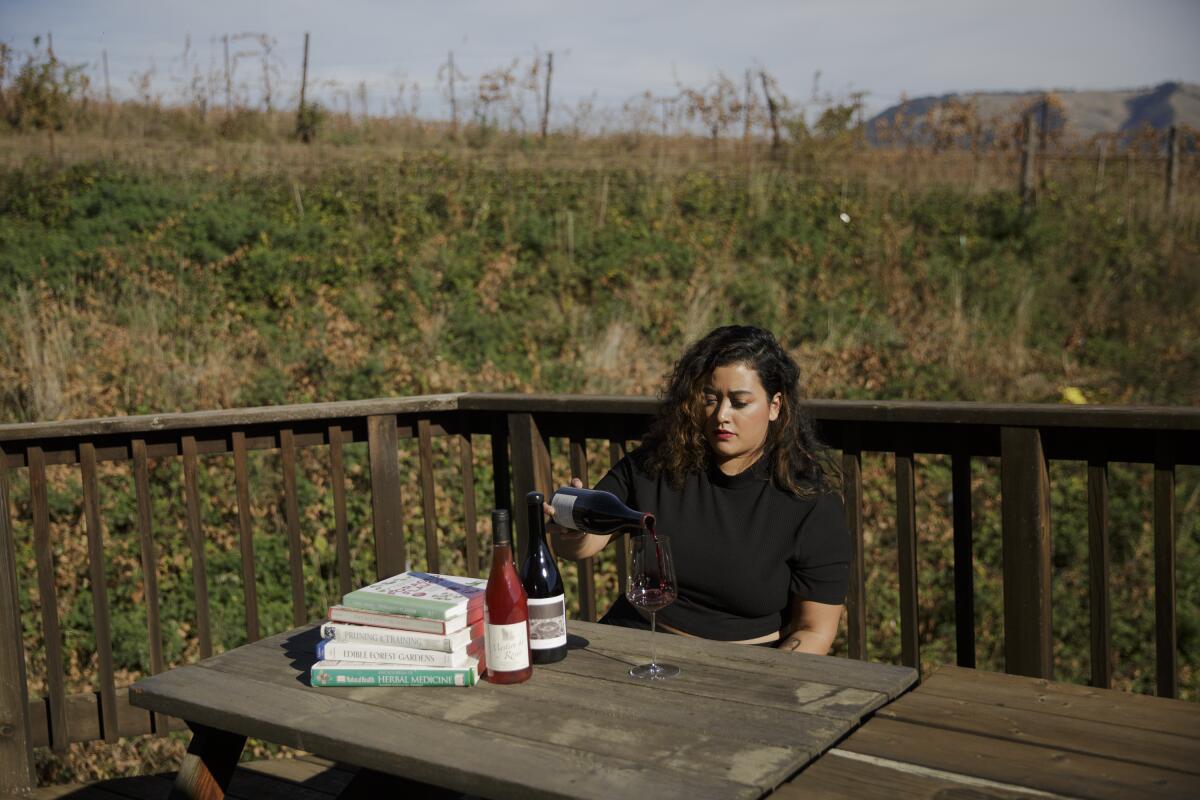
An August class prompted participants to “give Pais a chance,” with a full session on the red wine grape frequently used in Chilean winemaking. The September session focused on the global warming crisis and how it’s affecting vines.
“We’re putting things in the lens of BIPOC not just biculturally but historically, telling the stories of colonization, telling the stories of how wines were coming to the Americas on ships that also had slaves,” Jireh said. “Telling the story of wine in a decolonized way is not happening.”
LaShea Delaney, a Los Angeles writer and sales rep for Sacred Thirst Selections and Roni Selects wine importers and distributors, says she’s attended all but one of the sessions. The 37-year-old met Jireh during a podcast conversation earlier this year about Black women in wine.
“The sessions just seemed like the best possible thing to bring together people that are interested in wine and involved in wine who are also people of color,” Delaney said. “Going to wine events, you feel like you are one in a million and with Industry Sessions, I’ve been on these Zooms where there are 65 people and we are all spread over the country and it’s enlightening to know that there are so many of us.”
Delaney describes her wine education as mostly informal, on-the-job training. She worked as a floor sommelier at Kismet restaurant and the now-shuttered Tartine in downtown L.A. before transitioning to wine sales.
“When it comes to formal wine education, it has always seemed too expensive and not super inclusive in the kinds of wines that they cover,” she said.
Jireh and Sligh have tied their curriculum to the natural wine movement, believing that the genre lends itself to a more accessible, inclusive price point and ethos surrounding wine and winemaking.
“I think natural wine feels like something that more people can relate to,” Sligh said. The natural wine world tends to attract younger fans, who make a willing audience for lesser-known grapes and regions that tend to produce more affordable wines. Nonetheless, “it’s still a very white, male part of the industry,” he added.
The most recent session on Oct. 25 focused on Chenin and featured two guest speakers, master sommelier Pascaline Lepeltier and California winemaker Craig Haarmeyer of Haarmeyer Wine Cellars.
“No sommsplaining ever,” Jireh said to start the class. “Let’s make it safe for everybody.”
The Zoom class was filled with wine industry professionals as well as chefs, people who wanted to get into wine sales, and even a coffee enthusiast who simply wished to learn more about wine. People from 13 cities around the country listened in as Sligh, wearing a green shirt emblazoned with “Chenin!!! Chenin!!! Chenin!!! blanc” answered questions about the grape and used a vocabulary that was neither pretentious nor preachy.
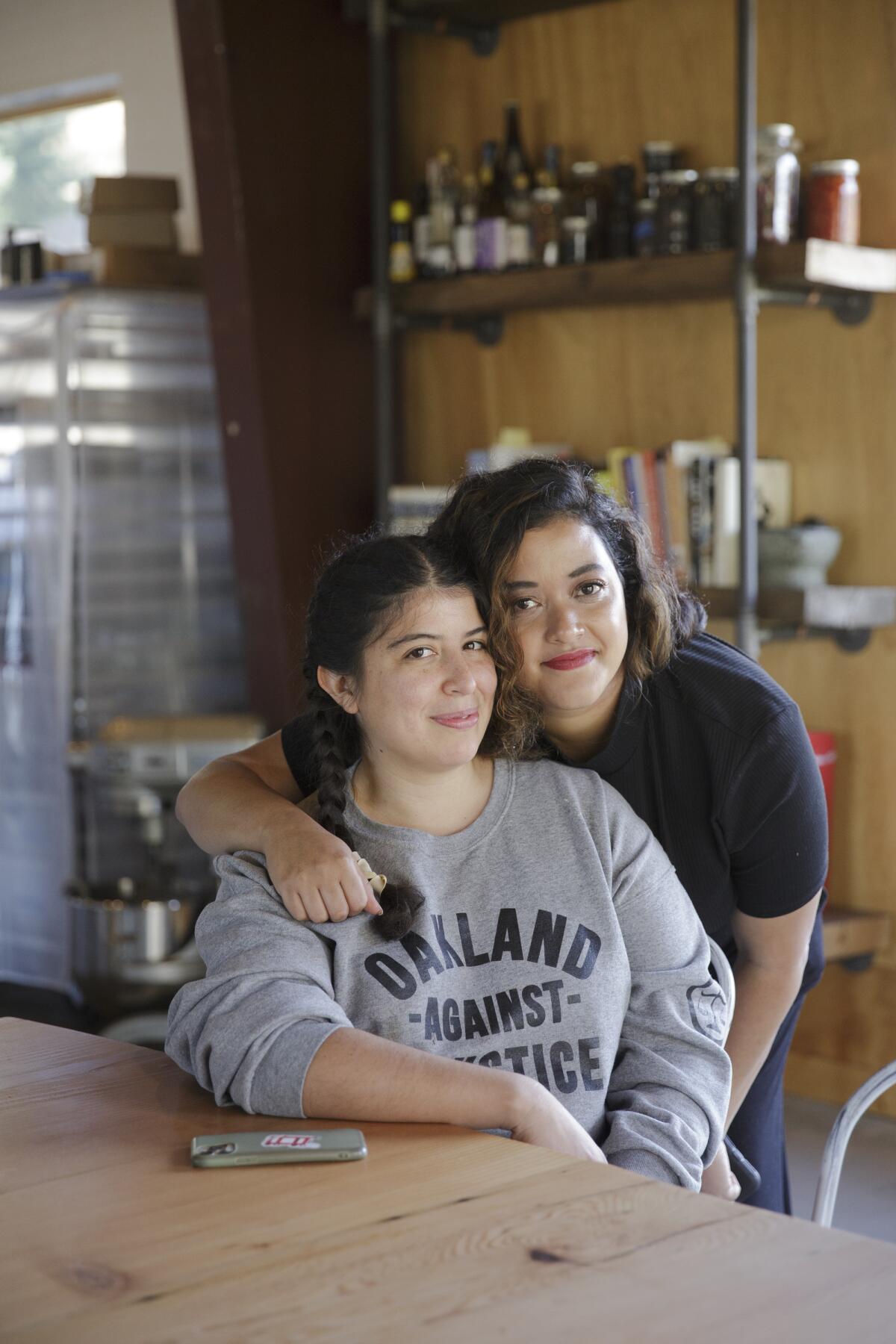
“Part of the process for us is to create structures that aren’t just replicating the hierarchy that were problems to begin with,” Sligh said. “Decentering and making a model for wine education that is more bottom up rather than top down and more about people talking to and learning from each other.”
Participants dropped questions into the Zoom chat as the class progressed:
“What is malolactic?”
“What is splash decant?”
“What is oxidation?”
The discussion split into tasting groups of eight, and everyone had 45 seconds to taste their wine and break it down by nose, structure and taste. The Los Angeles participants tasted bottles of Domaine Mosse 2018 Chenin from Voodoo Vin in East Hollywood.
“People have already connected from these sessions in their own cities, people have gotten jobs and are working in different wineries and that will only continue to grow,” Jireh said.
The pair plan to host two more sessions this year and hope to eventually transition the classes to in-person events post-pandemic.
“I just want to see more BIPOC people in positions of leadership where they get to make decisions,” Jireh said. “And I dream of being in a chateau in France with 45 BIPOC wine professionals at a yearly dinner and for it to just become life.”
- Share via
Watch L.A. Times Today at 7 p.m. on Spectrum News 1 on Channel 1 or live stream on the Spectrum News App. Palos Verdes Peninsula and Orange County viewers can watch on Cox Systems on channel 99.
More to Read
Eat your way across L.A.
Get our weekly Tasting Notes newsletter for reviews, news and more.
You may occasionally receive promotional content from the Los Angeles Times.
